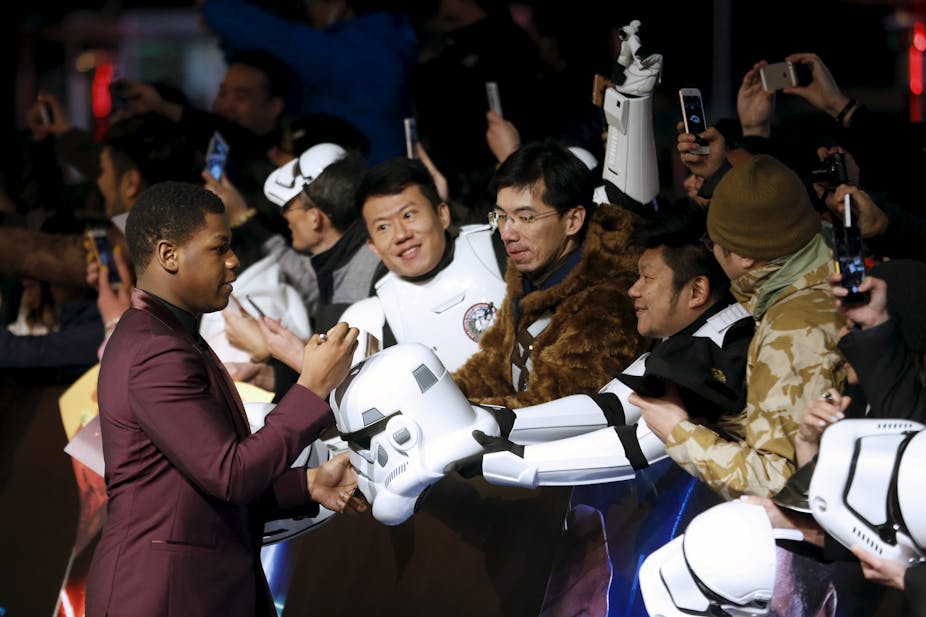Star Wars: The Force Awakens has broken a number of box office records since its release. And its popularity across the globe has led to projections that it will surpass Avatar as the top grossing film of all time. But this will largely depend on China, which has the second-largest movie market after the US.
China opened its film market to Hollywood in 1994. Staggering growth made it the second largest in the world, overtaking Japan in 2012. And many specialists, including American film business experts and Chinese government officials, contend that it is only a matter of time before China surpasses the US and becomes the world’s biggest.
While the total number of screens and the price of cinema tickets in China are still below those in the US, there are approximately ten to fifteen screens opening every day, and this number is rising sharply. According to government statistics published in December 2015, total box-office revenue increased in 2015 by 48%.
Since opening up to the global film industry, China’s lucrative film market has attracted Hollywood companies which have seen their main markets – North America and Europe – become saturated. But China is no easy landing ground for giant Hollywood spaceships.
Obstacles to invasion
The Chinese government has gone to great lengths to protect its domestic film industry by setting up numerous obstacles to foreign invasion. These include controls on the number of theatres that show foreign films and for how long they are shown for.
Then Hollywood must navigate the blackout periods that the government institutes. Officially known as the “domestic film protection periods”, these are golden box-office times. So, during big national holidays such as Chinese New Year and the National Day in October, as well as over the summer, foreign films, mostly Hollywood tent-poles, have to make way for Chinese movies.
There are also annual quotas for imported foreign films. Under a revenue share scheme, only 34 foreign titles can be released each year.
Released in spring 2015, Furious 7, became the highest-grossing film in China. But it was beaten by Monster Hunt (捉妖记 or Zhuō Yāo Jì), a Chinese-Hong Kong 3D fantasy film about a baby monster, to the position of highest grossing movie there overall. State figures show that domestic films took 59% of total Chinese box office revenue in 2015.
Chinese audiences may not have the same nostalgic memories of Star Wars as elsewhere around the world. Instead Disney is promoting the movie with full force in an attempt to launch its popularity among this new audience. It dispatched around 500 stormtroopers on the Great Wall in a marketing move.
It also designated Lu Han, a pop idol star turned actor, as a Chinese ambassador of the movie so as to attract young audiences. To help new learners’ catch up, Disney and 20th Century Fox have also partnered with one of China’s biggest internet companies, Tencent, to enable online video streaming of the entire Star Wars series.
The film’s PG-13 rating also stands it in good stead for Chinese audiences. There is no rating system in China – to be passed for theatrical release, movies must be suitable for family viewing. This may well have been a factor in the lack of sexual or violent content in The Force Awakens.
Chinese film experts predict that this latest offering will be received positively by Chinese audiences and may well end up among the top ten highest grossing films of 2016.

